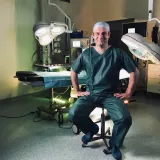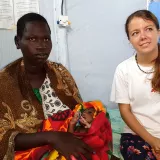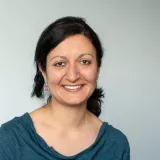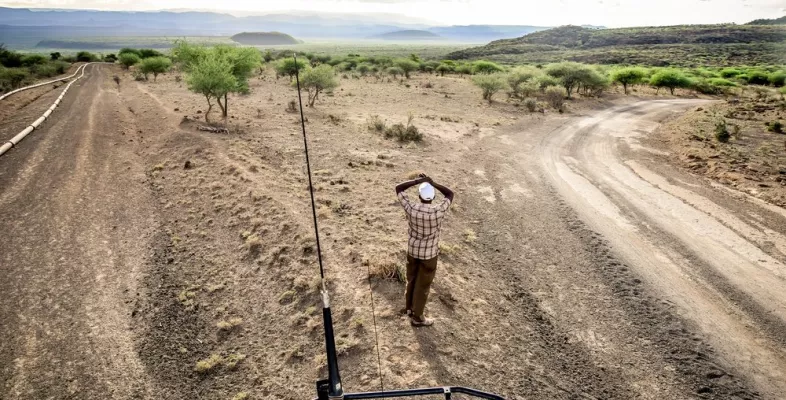
MSF launched a three-month (Mid-April to June) intervention in consultation with the MoH.24 snake bite victims with about 10 cases spread in the rest of Baringo were managed during this period.
The team carried out clinical trainings for 233 health care workers and 154 Community health extension workers, Community volunteers and Community resource persons.
On the management of snake bites; provided clinical pocket guides and standard operating procedures (SOPs) on management of snake bites for use in health facilities. The team supported in the development and roll out of health promotion messages on prevention and first aid management of snake bites which were used to train community health extension workers (CHEWs) and volunteers.
On September 19, 2019, as the the world marks the second International Snakebite Awareness Day to raise awareness on the huge, yet mostly unrecognised, global impact of snakebite, MSF is calling for an ambitious, multifaceted approach in tackling this neglected health crisis.

MSF launched a three-month (Mid-April to June) intervention in consultation with the MoH.24 snake bite victims with about 10 cases spread in the rest of Baringo were managed during this period.
The team carried out clinical trainings for 233 health care workers and 154 Community health extension workers, Community volunteers and Community resource persons.
On the management of snake bites; provided clinical pocket guides and standard operating procedures (SOPs) on management of snake bites for use in health facilities. The team supported in the development and roll out of health promotion messages on prevention and first aid management of snake bites which were used to train community health extension workers (CHEWs) and volunteers.
On September 19, 2019, as the the world marks the second International Snakebite Awareness Day to raise awareness on the huge, yet mostly unrecognised, global impact of snakebite, MSF is calling for an ambitious, multifaceted approach in tackling this neglected health crisis.
Take the self-test: Is project work right for you?
The tasks in our projects pose great challenges, so our employees have to be extremely resilient, calm and flexible. The onsite situation is unfamiliar, the work can be physically and mentally stressful, and the living conditions are often extreme and stressful.
Before you apply for an assignment with us, you should therefore thoroughly check your motivation. Do you have idealized ideas about working in emergency medical aid? Do you want to escape personal problems? Are you aware of everything you can expect in a project? Have you already made sure you are thoroughly informed, for example, at one of our information events where staff members report on their experiences?
Work in war and crisis regions
Our projects are often located in politically unstable regions or in countries where war is raging. Health facilities can be targets of attacks, and security risks cannot be completely ruled out. Therefore, you should ask yourself the following questions before applying:
- What does it mean for you if you treat victims of attacks and the front line is not far away?
- How do you deal with possibly traumatic experiences?
- Are you prepared to follow a strict security protocol, even if it massively restricts your freedom of movement?
- What does it mean for your close relatives if you volunteer for a mission in a crisis area?
Human rights violations
Médecins Sans Frontières (MSF) provides emergency care to people in regions where there are sometimes flagrant human rights violations, where there is no access to essential medicines or where poverty is widespread.
- How do you feel it when you directly witness human rights violations?
- How do you endure injustice?
- How do you deal with your own helplessness?
- What does it mean for you to have no control over your environment?
Hardly any privacy, simple accommodation
The living conditions in the project are probably very different from your familiar environment in your home country.
- What does it mean to you if your privacy is restricted for a while?
- Can you imagine living in a simple mud hut or sharing a house with colleagues?
- How frugal and flexible are you?
- How resilient are you to climatic extremes?
High workload, a lot of stress
Emergency humanitarian aid in a crisis region is challenging and can be psychologically and physically stressful.
- Have you already spent a long time in a foreign environment that is very different from your own?
- How do you assess your psychological resilience?
- How do you deal with stress and conflicts?
- Can you live under difficult conditions and with a heavy workload for a longer period of time?
Little contact with family and friends
When you work for us in humanitarian aid, you have to do without close confidants for a longer period of time. You also gain experiences that they cannot easily relate to.
- What does it mean for you if you are not involved in the lives of the people who are most important to you for months on end?
- What does it mean for you and your friends and relatives if you cannot keep in touch or can only do so irregularly?
- Can you imagine how it feels for relatives when they receive disturbing news from your country of assignment?
An unparalleled experience
All these questions are essential when you are considering a foreign assignment. We therefore suggest that you take this reality check seriously and address any doubts before or at the latest during the application process.
At the same time, we would like to encourage you: Over the past decades, tens of thousands of people have been deployed abroad with MSF and a large number of them have been deployed multiple times. At the beginning, they all faced the same questions as you. But most of them look back after their deployment on an experience that was not only challenging but also incomparably enriching and life changing.
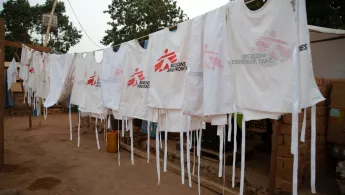
Blogs from our staff
From conflict zones to epidemics, our staff and patients are facing crisis situations around the globe. Read our blogs and find out what life is like on the frontline of the world's medical emergencies.

